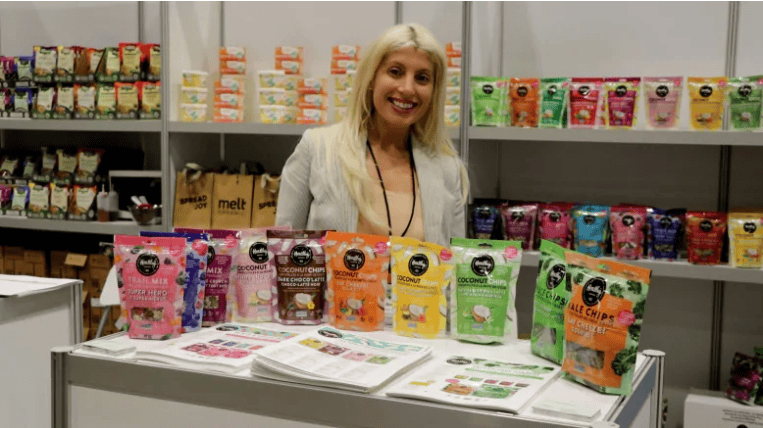
Food manufacturers and grocers say consumers want more wholesome foods from local companies
Gluten-free, paleo, vegan, keto, whole grain — there’s no shortage of businesses offering the latest food trends at the Canadian Health Foods Association trade show in Vancouver this weekend.
Rob Mendt, director of sales for Avafina Organics, says business is booming for his company based out of Coquitlam, B.C., near Vancouver.
“Every year it gets bigger and bigger,” Mendt said from his booth at the busy trade show. “That’s why we keep on expanding the lines and the brands.”
Twenty years ago, Avafina only supplied food manufacturers with organic seeds. But in the past couple of years, the company expanded to create its own line of seeds and spices for consumers under the name Mother Nature Foods.
Mendt says his ability to tell grocers where he sources his products and that they’re manufactured right in Coquitlam is a big selling feature.
“They like dealing with small companies in their area,” he said.
The Vancouver trade show comes on the heels of Kraft Heinz’s recent disclosure that it it will slash the value of its Oscar Mayer and Kraft brands. The announcement sent shares plunging 26 per cent Friday. Before noon, the company had lost $16 billion of its market value.
Kraft Heinz and other food makers that dominated grocery shelves for much of the post-Second-World-War- era have been whipsawed by a seismic shift in what consumers want. Families have pivoted away from familiar packaged foods amid a proliferation of products marketed as being more wholesome.
Helen Long, president of the Canadian Health Foods Association, says small companies also have the advantage of less infrastructure, which can keep them nimble in a market driven by fast-changing trends.
“It’s easy to kind of swing on a dime and change direction and keep things exciting,” Long said.
Diet-driven fads
Walking along the aisles of the more than 900 vendors at the trade show is a lesson in the hottest fads in “natural” foods — a marketing term that often designates products made from whole or organic foods, with no or few artificial ingredients.
Long says gluten-free foods are still a large part of the market, as are coconut products. More recently, foods infused with collagen are taking hold.
It’s a landscape also driven by health trends like the keto, vegan and paleo diets.
Martin Béland, president of Béland Organic Foods, has been importing organic foods from Quebec for about 20 years.
Béland says so-called natural foods aren’t a new phenomenon, but consumers are more aware of them and have been demanding them more.
“We’re starting to see the fruits of our labours,” he said from his trade show booth. “It’s a good opportunity for innovators in organic products to make their mark.”
It’s a trend that grocery stores have noted, and are taking advantage of to give them a leg up in what they say is a very competitive market.
Janice Meek, vitamins and more manager at Thrifty Foods, a subsidiary of Sobeys, says consumers are demanding more local, whole and unique products.
Meek says the company’s new store in Belmont on Vancouver Island will have a lot more specialty items, a juice section and a place to sit and eat.
“Those kinds of stores, that’s what’s been doing well for for Sobeys,” she said.


